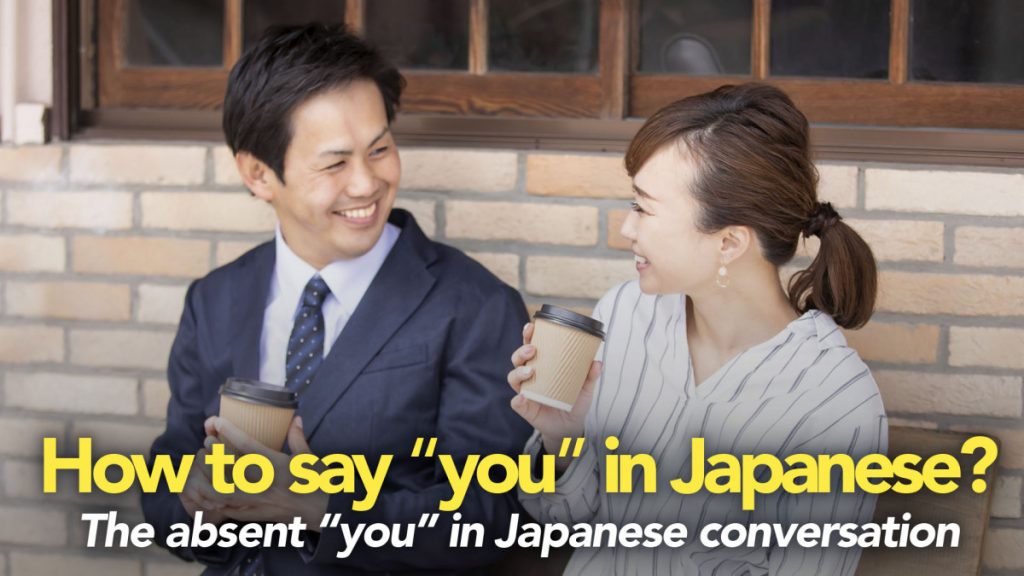Saying “you” in Japanese is much more tricky than in English. In English, we have just one word that we can use it all the time. However, in Japan, there is a variety of “you” on different occasions and a strong tendency to avoid using it.
Anata (あなた)

This is the standard and polite way to refer to the listener in a conversation. However, it is generally used only when you do not know the name. In the past, women used the word to refer to their spouses, similar to “darling.”
You probably see textbooks using the word “anata” a lot, but it is just there to help learners to understand the sentence better. Japanese usually omit the word “you” in a sentence, and are tend to derive the information from the context.
Kimi (君/きみ)

This word is usually used by men in a casual conversation. It would be inappropriate to use when talking to your boss or someone who has a higher social status, as it expresses a level of intimacy. It is also commonly found in lyrics to refer to both female and male.
Anta (あんた)

It is the shortened version of “anata”, but be careful not to use it casually. “Anta” can be quite offensive, and it expresses the speaker’s superiority. You may hear some close friends or comedians use it to address or criticize someone, but if you are unsure, just avoid this term when conversing in Japanese.
Omae (お前/おまえ)

A term used in very informal situations or towards people of lower status. Although this is a masculine way of saying “you,” this word can easily come off as rude. However, do not get oversensitive when hearing a stranger of your age on a bus speaks to you and use “omae.” In this case, “omae” is just similar to “Hey! You!”
Kisama (貴様/きさま)/ Temee (手前/てめえ)

These words all indicate anger or disapproval of whoever you are talking to. So do not use them in front of a Japanese or else there’s gonna be a fight.
Use of suffixes
As mentioned above, the Japanese are used to omitting the word “you” in the conversation. However, to avoid confusion or to show respect, you are encouraged to replace “you” with the person’s (family) name, together with a proper suffix.
~san(さん): it works for everyone, a safe suffix for new learners
~sama(様/さま): a very polite version of san (usually for guests)
~kun(君/くん): a suffix used towards young men or boys
~chan(ちゃん): A suffix indicating a high degree of familiarity/ used towards young women or girls
There are more terms for “you” and suffixes to learn if you are a fan of historical Japanese drama. I guess the easiest way to absorb one’s language will be daily observation. Good luck to “you” all, dear.

